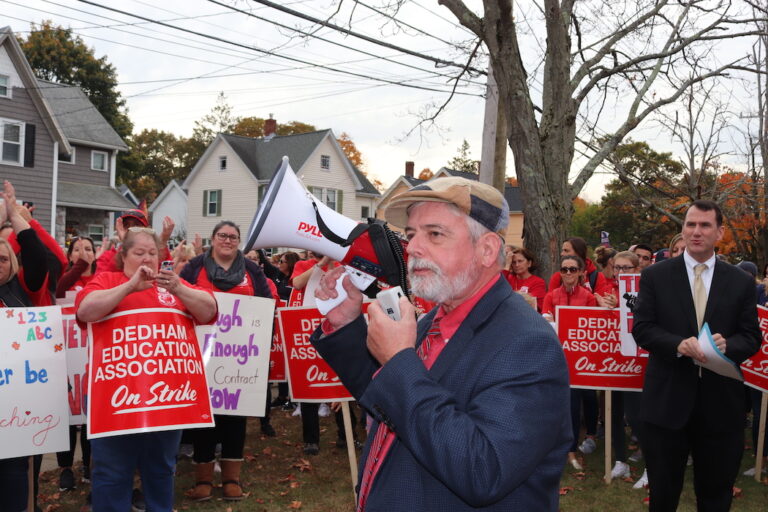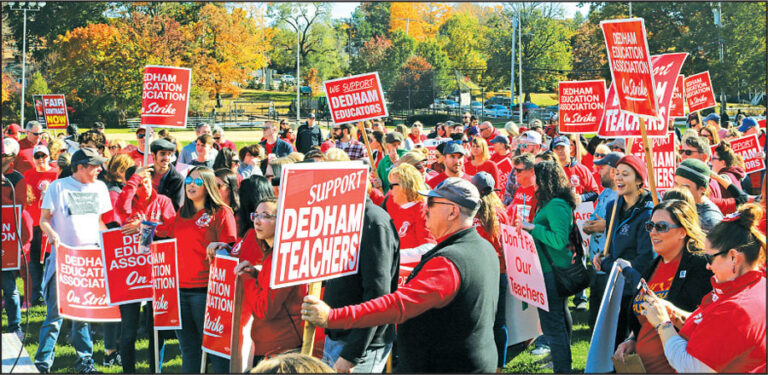Dedham
Dedham strike in 2019 is first in 12 years

We know that it’s disruptive, and they know that it’s disruptive, but they know that it’s important and that our work environment is their learning environment.
The Dedham Education Association had multiple concerns that drove members to strike on Oct. 25. Students and parents joined the picket line. This was the first strike by an MTA local since Quincy educators struck in 2007.
Members’ concerns included bargaining delays, the district’s resistance to a sexual harassment policy proposed by the union, weakening health care coverage, salaries and students’ cell phone use.
“Massachusetts Senators Elizabeth Warren and Ed Markey, as well as Vermont Senator Bernie Sanders, took to social media and issued statements of support for the educators,” MTA Today reported.

In the end, the DEA won contract language concerning sexual harassment policies, students’ use of personal technology in the classroom and professional development programs, along with wage increases of 10 to 13 percent over two years. The increases were in part to account for members having to pay more of their health insurance costs.
After a settlement was reached, Rachel Dudley, bargaining chair for the local, told WGBH radio that the outcome was satisfactory. “The union and school officials found compromise on everything they set out to resolve,” Dudley said.
It is illegal, it’s not criminal, and we spend a lot of time teaching our students to stand up for ourselves and stand up for what’s right, and our members decided that it was time for us to stand up for what we feel is right.
